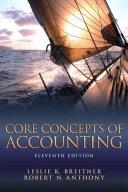Question
1. Use the following income statement and balance sheet to answer the following questions. Income Statement Sales 130,000 (Cost of Goods Sold 26,000 Salaries and
1.
Use the following income statement and balance sheet to answer the following questions.
Income Statement
Sales 130,000
(Cost of Goods Sold 26,000
Salaries and Wages 15,000
Rent Expense 5,000
Licensing Expenses 20,000
Advertising Expense 4,000
Balance Sheet
Assets
Cash 10,000
Inventory 15,000
Property, Plant, and Equipment 250,000
Accounts Receivable 5,000
Liabilities
Accounts Payable 20,000
Notes Payable 40,000
Owners' Equity
Common Stock 120,000
Retained Earnings 100,000
Instructions:
a) Calculate Gross Profit, Net Profit, Total Current Asset, Total fixed Asset, Total
Asset, Total Current Liability, Total liability, Ending owners' equity, Post closing
Trail Balance.
2.
Use the following information prepare Closing Entries and Cost Closing trial balance.
Cash 40,000
Accounts Receivable 8,000
Property, Plant, and Equipment 150,000
Inventory 30,000
Accounts Payable 15,000
Wages Payable 22,000
Common Stock 50,000
Retained Earnings 60,000
Sales 380,000
Cost of Goods Sold 120,000
Rent Expense 60,000
Wages and Salary Expense 110,000
Advertising Expense 9,000
3.
Materials purchased 2,50,000, Wages paid 2,00,000, Carriage inward 2,000, Consumable Stores
10,000, Wages of Storekeeper 7,000, Depreciation of Plant & Machinery 10,000, Materials
destroyed by Fire 5,000, Repairs & Renewals 5,010, Office Manager's Salary 10,000, Salary to
Office Staff 20,500, Printing & Stationary 10,000, Power 10,500, Lighting for Office Building
2,000, Carriage outward 3,000, Freight 5,000, Entertainment 2,500, Warehousing charges 1,500,
Legal charges 2,000, Expenses for participating in Industrial exhibition-6,000.
Closing Stock:
(i) Raw material 35,000,
(ii) Work-in-Progress 14,500, and
(iii) Finished Stock 40,030. Profit 25% on cost.
Calculate:
Product cost, Period cost, Prime cost, Factory cost, Cost of Goods sold, profit, Total cost,
Variable cost, fixed cost, Break-even point.
4.
Short notes:
Double entry systems, Accounting Equation, GAAP, Ledger, Financial Reporting, adjusting
journal, Closing Journal, Post Closing Trial Balance, Work Sheet, Accounting Cycle, Reversing
entries, Managerial Accounting, cost unit, cost element, Break even Analysis.
Step by Step Solution
There are 3 Steps involved in it
Step: 1

Get Instant Access to Expert-Tailored Solutions
See step-by-step solutions with expert insights and AI powered tools for academic success
Step: 2

Step: 3

Ace Your Homework with AI
Get the answers you need in no time with our AI-driven, step-by-step assistance
Get Started


